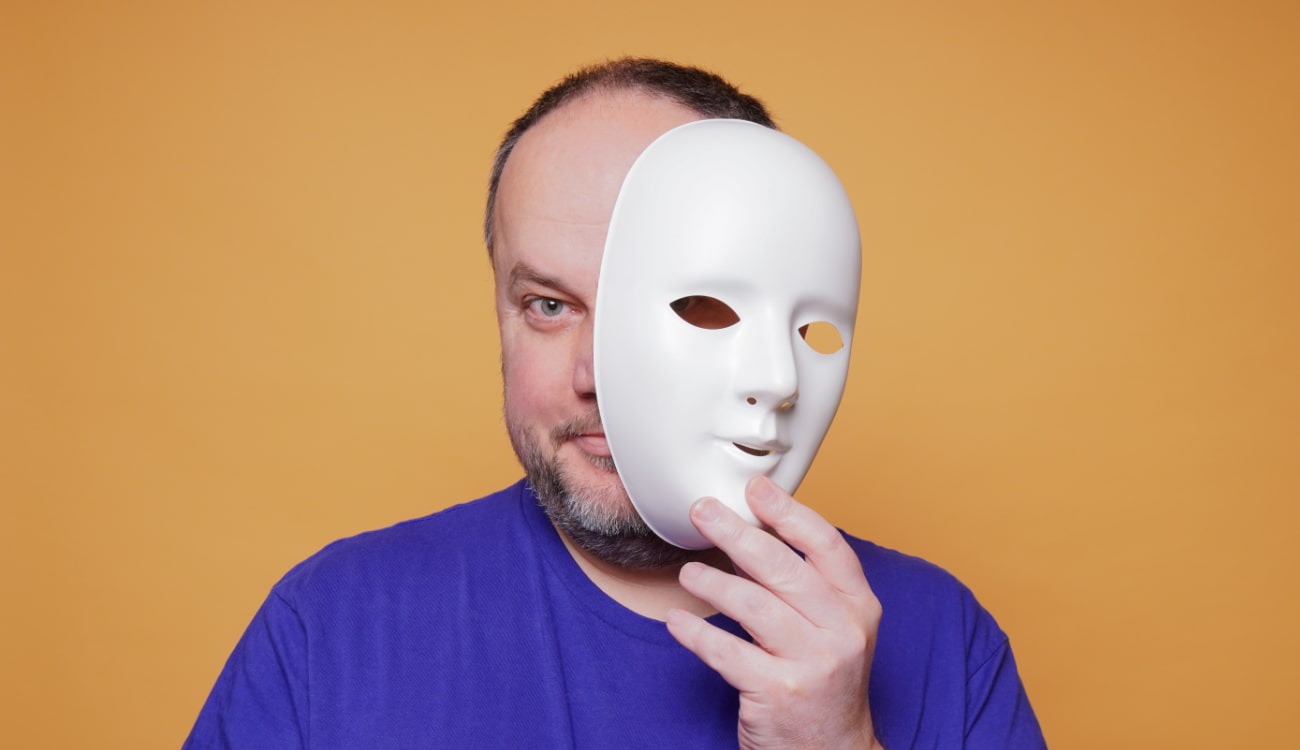Have you ever stopped to think about how exhausting it must be to pretend to be someone you’re not, every single day? For many people who hide their disabilities, that’s their reality.
It’s not something we talk about much. But the truth is, a lot of people with disabilities learn to hide it. They feel pressure to act like everything is fine, even when it’s not. They smile, they laugh, they say “I’m okay,” even when they’re struggling inside.
Hiding a disability isn’t just about putting on a brave face. It’s like wearing an invisible costume. One that makes you feel like you have to act like someone else. Someone who fits into what the world calls “normal.” But behind that mask, there’s often pain, tiredness, and a deep feeling of being alone.
Why People Hide Their Disability From a Young Age
It often starts early. From a young age, people with disabilities are told to act like everyone else. That could mean covering up signs of anxiety or pretending to understand things that don’t come naturally. It might look like ignoring pain or pretending to be okay when their body is begging for rest.
Sometimes it feels easier to hide the truth than to try and explain it. Especially when you’re scared of being judged or left out.
But pretending all the time is exhausting. It can wear you down. When you keep acting like everything’s fine, even when it isn’t, it can lead to burnout, anxiety, or depression. You don’t get to rest. You don’t get to be yourself. And over time, that takes a toll.
People, especially kids, often feel like they have to be “good” or “perfect.” But if you’re already dealing with the challenges of a disability, trying to meet those expectations can feel impossible. Some people think that if they just hide their struggles, things will get easier. That they’ll fit in better. But really, it just makes them feel more alone, like they’re living two different lives. The one the world sees, and the one that’s real.
Why I Hide My Own Feelings
I don’t have a diagnosis, but sometimes I wonder if things would have been different if I had been understood better as a kid. Maybe someone would have noticed signs of autism or ADHD. I don’t know.
Even now, I find social situations hard. I get anxious and overthink what I’m saying. I worry about eye contact. I used to avoid answering my phone because it scared me, though I never really knew why. I can answer it now, but it took time.
Looking back at school, I realise how much I used to mask. I’d laugh at jokes I didn’t get just to fit in. I’d avoid PE because I was bad at sports and didn’t want to be judged. I never asked for help in class, even when I really needed it, because I was scared people would think I wasn’t smart enough.
If I could speak to my younger self, I’d tell them to stop being so hard on themselves. That it’s okay to be different. That they didn’t have to hide.
Even though I’m more confident now, I still see how much misunderstanding there is in the world. But if sharing this helps even one person feel seen or less alone, then I’ll be glad I wrote it.
No one should feel like they have to hide who they are. So next time someone seems a little quiet or off, take a moment. They might be masking more than you realise. And maybe, just maybe, they need someone to show them that they’re okay just as they are.
Why It’s Hard to Tell When Someone Is Struggling
What makes this even harder is that some disabilities are invisible. You can’t always see what someone is going through. Things like autism, ADHD, chronic pain, or mental health struggles don’t always show on the outside.
So if someone seems fine, people often assume they are fine. But they might not be. They might be masking, trying to get through the day without letting anyone see how hard it really is.
That’s why it’s so important not to jump to conclusions. Just because someone looks okay doesn’t mean they are.
How We Can Help Those Who Need It
The first thing we can do is listen. Really listen. If someone says they’re tired, believe them. If they don’t join in or seem a little off, don’t assume they’re being rude or difficult. There could be so much going on that you can’t see.
Masking can make it really hard to ask for help. If you’ve been pretending everything is fine for a long time, it can feel scary to finally speak up. Some people worry they’ll be seen as weak, even though needing support is never a weakness.
So how can we make things better for people who hide their disabilities
We can start by creating safe spaces where people feel like they don’t have to hide. Where they can be honest and still be accepted. Where they’re not afraid of being judged or misunderstood.
We can also learn more. There are so many kinds of disabilities, and each person’s experience is different. The more we understand, the more kind and supportive we can be.
We can remind each other that being different is okay. That nobody has to pretend to be someone they’re not. That it’s not about fitting into someone else’s idea of “normal,” but about being true to yourself.





0 Comments